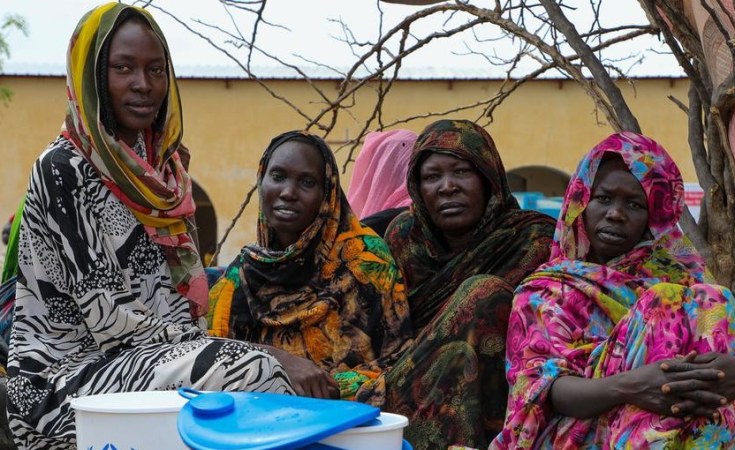Amid a massive increase in the number of people in Sudan impacted by more than a month of heavy fighting, the UN on Wednesday said that it needed a record near $3 billion to deliver life-saving aid to them.
In addition to a revised request from the UN aid coordination office OCHA for $2.56 billion to fund its Humanitarian Response Plan - targeting some 18 million people in Sudan - the UN refugee agency (UNHCR) said that it required $472 million to assist those forced to flee across the country's borders.
The revised joint humanitarian response plan updates the response strategy launched for Sudan in December 2022 and reflects the "fundamental and widespread needs" within the country, according to OCHA.
Kickstarting aid
"Today 25 million people, more than half the population of Sudan, need humanitarian aid and protection," said Ramesh Rajasingham, Head and Representative of OCHA in Geneva.
"This is the highest number we have ever seen in the country (and) the response plan we are launching today reflects that new reality; the funding requirement of nearly $2.6 billion is also the highest for any humanitarian appeal for Sudan."
The fighting that started on 15 April between the Sudanese Armed Forces (SAF) and the Rapid Support Forces (RSF) has caused tremendous human suffering and death, exacerbating significant pre-existing humanitarian needs in Sudan.
Regional threat
There is also every sign that the crisis could evolve into a regional emergency, OCHA's Mr. Rajasingham warned, before listing a number of urgent needs, including protection from fighting, medical support, food and water, sanitation, shelter and trauma care.
Since fighting began, nearly a million people have been displaced, the number of those internally displaced has risen to 730,000 and 220,000 have fled to neighboring countries.
"We are also receiving worrying reports of increased sexual violence while the victims have little access to help. Children are especially vulnerable in this chaos that is unfolding," OCHA also reported.
Also in Geneva for the revised funding appeal, UNHCR's Raouf Mazou, UNHCR's Assistant High Commissioner for Operations, said that the conflict had caused "massive outflows" into neighboring countries, including Chad, where around 60,000 people have now crossed the border in search of safety.
To date, 220,000 refugees and returnees have fled to Chad, Sudan, Egypt, Central African Republic and Ethiopia, the UNHCR official said, adding that 150,000 of them were Sudanese refugees and asylum seekers.
Displaced South Sudanese form the largest number of non-Sudanese people in need. "Overall, we have to keep in mind that there were 1.1 million refugees living in Sudan prior to this crisis," Mr. Mazou said, before noting that the UN agency's appeal for $472 million would provide assistance to more than one million people for six months.
Famine fears
A few months ago, humanitarian needs were almost half today's requirement, said OCHA's Mr. Rajasingham.
But needs throughout the country have "expanded drastically" since the conflict erupted, leaving an increasing number of people dangerously hungry. "When you have a crisis like this and you don't have access to basic services, you don't have access to health and water, there's an enormous risk that there will be an increased risk of famine as well," he said.


